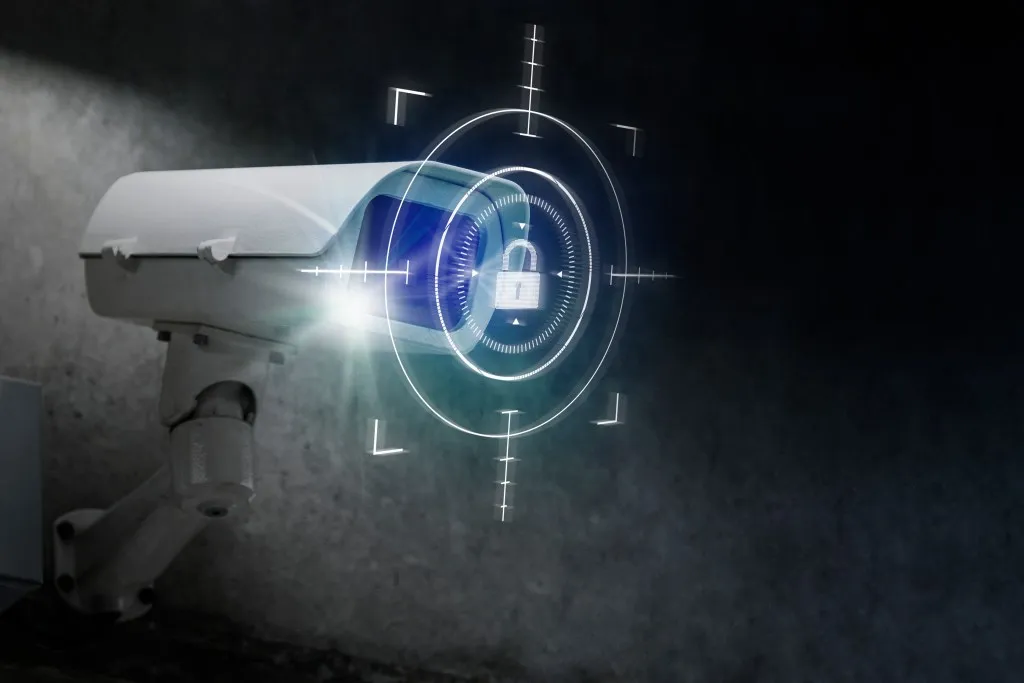Are you thinking about jumping into the world of cybersecurity? You're making a smart choice! The field is booming with jobs, and companies everywhere need people who can protect their data. When I first got interested in cybersecurity, I had no idea where to begin. But don't worry - I've been through it all and I'm here to help you find your way.
How To Start A Career In Cybersecurity When You Know Nothing
Starting from zero in cybersecurity might feel scary. But guess what? Everyone starts somewhere! Even the top experts in the field once knew nothing about firewalls or encryption. When I first looked into cybersecurity careers, I felt lost in all the technical terms. But I soon found out that with the right steps, anyone can build a successful career in this field. Here's the truth: You don't need a computer science degree to work in cybersecurity. What you do need is curiosity, the willingness to learn, and some guidance on where to begin.
My First Steps Into The Cyber World
I remember sitting at my kitchen table, wondering how to break into this field. Should I go back to school? Take an online course? It was overwhelming! After trying different approaches, I discovered that building a strong foundation and then gaining hands-on experience is the key. Let me share what worked for me and many others I've helped start their cybersecurity journeys.
Understanding The Basics: What Is Cybersecurity?
Before diving into how to start, let's make sure we're on the same page about what cybersecurity actually is. Cybersecurity is all about protecting computers, networks, programs, and data from unauthorized access or attacks. Think of it as being a digital guardian - you help keep the bad guys away from important information.
Cybersecurity professionals are like digital police officers, working to prevent crimes before they happen and investigating when something goes wrong.
The field includes many areas:
- Network security
- Application security
- Information security
- Operational security
- Disaster recovery
Each area needs different skills, which is great because it means there's likely a perfect fit for your interests and strengths!
Why Choose A Career In Cybersecurity?
When I was thinking about changing careers, here's what convinced me that cybersecurity was the right choice:
Job Security And Growth
The cybersecurity field is growing super fast! According to recent reports, there will be millions of unfilled cybersecurity jobs in the coming years. This means:
- Companies are desperately looking for qualified people
- Your skills will be in demand for years to come
- You'll have job security even during tough economic times
Great Pay From The Start
Let's be honest - money matters when choosing a career. The good news is that cybersecurity pays well, even for beginners. Entry-level positions often start at $60,000-$80,000 per year, and experienced professionals can earn well over $100,000. When I made the switch to cybersecurity, my salary jumped by almost 40% within two years!
Endless Learning Opportunities
If you enjoy learning new things, cybersecurity is perfect. The field changes constantly as new technologies and threats emerge. I love that I'm always learning something new. Just when you think you've mastered something, a new challenge appears that pushes you to grow even more.
Making A Real Difference
There's something really satisfying about knowing your work protects people and organizations from harm. When I help a company secure their customer data or prevent a potential breach, I know I'm making a real difference.
How To Start Cyber Security Career From Scratch
Now let's get to the practical steps for breaking into cybersecurity with no experience. I've organized this into a step-by-step plan that worked for me and many others I've mentored.
Step 1: Build Your Foundation Knowledge
Before diving into advanced topics, you need to understand the basics. Here's where to start:
Learn Computer Networking Fundamentals
Networking is the backbone of cybersecurity. You need to understand how computers talk to each other before you can protect them.
I started with simple courses that explained:
- How IP addresses work
- What DNS is and why it matters
- The basics of routing and switching
- How data travels across networks
CompTIA Network+ is an excellent starting point for building this knowledge. Even free resources like YouTube videos can help you grasp these concepts.
Understand Operating Systems
You'll need to know how operating systems work, especially Windows and Linux. Focus on learning:
- Basic commands and navigation
- How permissions work
- System administration tasks
- Security features built into these systems
I spent a month just practicing Linux commands until they became second nature. This knowledge has proven invaluable throughout my career.
Learn Programming Basics
You don't need to become a full-fledged programmer, but understanding basic coding concepts will help you tremendously. Start with Python - it's beginner-friendly and widely used in cybersecurity. Even learning just enough to write simple scripts will give you an edge. When I learned my first Python script to automate a security task, it felt like I had gained a superpower!
Step 2: Get Certified - Your First Stepping Stones
Certifications are your friend when you're starting with no experience. They show employers you're serious and have verified knowledge.
Best Entry-Level Cybersecurity Certifications
These certifications are perfect for beginners:
- CompTIA Security+: This is widely recognized as the best starting certification. It covers all the fundamental security concepts you need to know.
- Certified Information Systems Security Professional (CISSP) Associate: If you pass the CISSP exam but don't have the required experience yet, you can become an Associate until you gain the experience.
- Certified Ethical Hacker (CEH): This certification teaches you to think like a hacker, which is valuable for defending against attacks.
When I got my Security+ certification, I immediately noticed more responses to my job applications. It was like having a key that unlocked doors!
Step 3: Gain Hands-On Experience (Even Without A Job)
Book knowledge isn't enough in cybersecurity. You need hands-on experience, and you can get this even without a job.
Build A Home Lab
Setting up a virtual lab at home was one of the smartest things I did. You can use free software like VirtualBox to create a network of virtual machines where you can practice:
- Setting up firewalls
- Detecting and responding to simulated attacks
- Configuring security tools
- Testing vulnerabilities safely
My first home lab was just two virtual machines on my laptop, but it taught me more than any book could!
Practice With Capture The Flag (CTF) Challenges
CTF competitions are like games that test your cybersecurity skills. They're fun and extremely educational.
Sites like:
- Try Hack Me
- Hack The Box
- Cyber Defenders
provide challenges for all skill levels. I still remember the rush of solving my first CTF challenge - it was addictive!
Volunteer Your Skills
Look for nonprofits or small businesses that might need help with basic security assessments. Even if it's just helping a local charity secure their website, this experience counts!
Finding Your First Cybersecurity Job
With some knowledge, certifications, and hands-on practice, you're ready to look for your first real cybersecurity position.
Entry-Level Positions To Target
Don't expect to become a Chief Information Security Officer right away! These positions are great starting points:
- Security Operations Center (SOC) Analyst: Monitoring alerts and responding to potential security incidents
- IT Help Desk with Security Focus: Supporting users while learning about security issues
- Junior Security Administrator: Helping maintain security systems
- Security Technician: Installing and configuring security tools
My first role was as a SOC Analyst Level 1. The pay wasn't amazing, but the experience was priceless.
How To Make Your Resume Stand Out With No Experience
When I applied for my first cybersecurity job, I had to get creative with my resume. Here's what worked:
- Highlight relevant skills from previous jobs: Customer service, problem-solving, and attention to detail are all valuable in cybersecurity
- Showcase projects from your home lab: Describe what you built and the security concepts you applied
- Include CTF challenges you've completed: This shows practical skills
- List all relevant certifications prominently: These validate your knowledge
One tip that helped me: Create a simple portfolio website showing your projects and learning journey. I included screenshots of my home lab setup and wrote about what I learned from it.
Networking: Your Secret Weapon
Building relationships in the industry is incredibly important. Here's how I built my network:
- Join local cybersecurity meetups: I was nervous at first, but people were welcoming to beginners
- Participate in online communities: Reddit's r/cybersecurity and Discord servers are great places to learn and connect
- Attend virtual conferences: Many have free or reduced-price tickets for students or newcomers
- Connect with professionals on LinkedIn: Don't just send connection requests - engage with their content and ask thoughtful questions
The job that launched my career came through someone I met at a local cybersecurity meetup. Never underestimate the power of connections!
How To Start A Career In Cybersecurity With No Experience: Specialized Paths
As you gain experience, you might want to specialize. The cybersecurity field has many exciting paths:
Ethical Hacking And Penetration Testing
If you enjoy finding weaknesses and thinking like an attacker, this could be your path. Ethical hackers (also called penetration testers) help organizations by testing their defenses.
To prepare for this path:
- Learn tools like Metasploit, Burp Suite, and Wireshark
- Practice on vulnerable virtual machines
- Study common attack techniques
- Develop strong documentation skills to report findings
Security Analysis And Incident Response
This role focuses on detecting, investigating, and responding to security threats. If you're detail-oriented and enjoy solving puzzles, this might be perfect for you.
To prepare:
- Learn about log analysis and SIEM tools
- Study common attack patterns and indicators of compromise
- Practice incident response procedures
- Develop strong communication skills for crisis situations
Cloud Security
With more businesses moving to the cloud, specialists who understand how to secure cloud environments are in high demand.
To prepare:
- Learn major cloud platforms (AWS, Azure, Google Cloud)
- Understand shared responsibility models
- Study cloud-specific security tools and practices
- Get cloud security certifications
Security Architecture
If you enjoy designing systems and thinking about the big picture, you might aim for a security architecture role. These professionals design secure systems from the ground up.
To prepare:
- Develop a deep understanding of network design
- Learn about secure development practices
- Study enterprise security frameworks
- Build experience with risk assessment
Common Mistakes To Avoid When Starting Your Cybersecurity Career
I've made some mistakes along my journey, and I've seen others make them too. Learn from our errors!
Trying To Learn Everything At Once
Cybersecurity is huge! When I started, I jumped from topic to topic, trying to learn everything. This left me with shallow knowledge in many areas instead of deep knowledge in a few.
Better approach: Focus on fundamentals first, then gradually add specific skills based on your career goals.
Neglecting Soft Skills
Technical skills are important, but so are communication, teamwork, and problem-solving. I've seen brilliant technical people struggle because they couldn't explain issues to non-technical colleagues.
Better approach: Practice explaining technical concepts in simple terms. Volunteer to present at meetups to improve your communication skills.
Expecting Too Much Too Soon
Some beginners expect to land high-paying security roles immediately. This usually leads to frustration.
Better approach: Be patient and value the learning experience of entry-level positions. Each role teaches you something valuable.
Resources I Used To Learn Cybersecurity
Here are some resources that helped me tremendously:
Online Courses And Platforms
- Coursera and edX: Offer courses from top universities, often with financial aid options
- Udemy: Has affordable courses on specific security topics
- Try Hack Me and Hack The Box: Provide hands-on labs and challenges
- Cybrary: Offers free and premium cybersecurity courses
Books That Helped Me
- "CompTIA Security+ Get Certified Get Ahead" by Darril Gibson
- "The Web Application Hacker's Handbook" by Dafydd Stuttard
- "Practical Malware Analysis" by Michael Sikorski
YouTube Channels Worth Following
- Professor Messer
- John Hammond
- David Bombal
- NetworkChuck
Podcasts For Learning On The Go
- Darknet Diaries
- Security Now
- The CyberWire
My Personal Journey: How I Broke Into Cybersecurity
Let me share a bit more about my own path, as it might help you see what's possible. Three years ago, I was working in retail management. I had always been interested in computers but had no formal training. The turning point came when our company experienced a data breach, and I became fascinated by how the security team handled it. I started learning on my own, using free resources and setting up a simple home lab. After six months of study, I earned my CompTIA Security+ certification.
Finding that first job wasn't easy. I applied to over 50 positions before landing an interview for a SOC Analyst role. The pay was less than my retail management job, but I took it anyway because I knew it was an investment in my future. The first few months were tough. I felt overwhelmed by how much I didn't know. But I kept learning, asking questions, and volunteering for challenging tasks.
Within a year, I was promoted to SOC Analyst Level 2. A year after that, I moved to a different company as a Security Engineer with a significant salary increase. The journey wasn't always smooth, but each challenge taught me something valuable. If I could go back in time and give myself advice, I'd say: "Be patient, focus on building practical skills, and don't be afraid to ask questions."
Final Thoughts: Your Cybersecurity Career Starts Today
Starting a cybersecurity career with no experience is challenging but absolutely possible. I've done it, and I've helped others do it too.
Remember these key points:
- Build a strong foundation in networking, operating systems, and basic programming
- Get certified to validate your knowledge and open doors
- Gain hands-on experience through home labs, CTF challenges, and volunteer work
- Network with professionals who can mentor and refer you
- Be patient and value each learning opportunity
The cybersecurity field needs people like you - people who are willing to learn and grow. The threats are always evolving, and fresh perspectives are valuable. Don't get discouraged if progress seems slow at first. Each day of learning brings you closer to your goal. The important thing is to start today. What will your first step be? Maybe it's setting up a virtual machine, signing up for a course, or joining an online community. Whatever it is, take that step now. Your future in cybersecurity is waiting for you!











